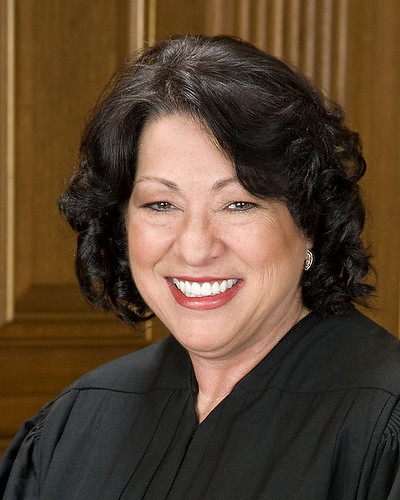In a recent Supreme Court decision, Justice Sonia Sotomayor issued a dissenting opinion in a case involving compelled speech and the rights of LGBT couples. The ruling, which came in a 6-3 vote on Friday, determined that Christian web designer Lorie Smith was not obligated to create wedding websites for same-sex couples, asserting that such a requirement would violate her First Amendment rights. The case centered around Smith’s challenge to Colorado’s anti-discrimination law, which prohibits public accommodations from denying services based on sexuality.
Justice Sotomayor’s dissent expressed concern over the implications of granting Smith religious liberty in this particular case. She argued that allowing such exemptions could potentially lead to companies refusing to serve individuals based on other protected characteristics, drawing attention to the possibility of discrimination against black individuals. Sotomayor raised the scenario of a website designer refusing to create a wedding website for an interracial couple, highlighting the historical opposition to interracial marriage rooted in discriminatory beliefs.
The dissent emphasized the importance of not forgetting past instances where religious justifications were used to deny equal treatment and rights to marginalized groups. By invoking the historical context of opposition to interracial marriage, Justice Sotomayor sought to underscore the potential consequences of granting broad religious exemptions in cases involving discrimination based on protected characteristics.
The majority opinion, however, concluded that Smith’s First Amendment rights to free speech and religious expression were paramount in this compelled speech case. The Court determined that compelling Smith to create websites that conflicted with her religious beliefs would infringe upon her constitutionally protected rights.
This ruling raises important questions surrounding the delicate balance between protecting individual rights and preventing discrimination. It highlights the ongoing legal debates regarding the scope and limits of religious exemptions in cases involving public accommodations and anti-discrimination laws.
As the dissenting opinion of Justice Sotomayor garners attention, it further contributes to the broader national conversation surrounding the intersection of religious freedom, freedom of speech, and the fight against discrimination. The Supreme Court’s decision in this case has implications for future legal battles and the ongoing efforts to establish clear guidelines regarding the boundaries of compelled speech in relation to protected characteristics.



